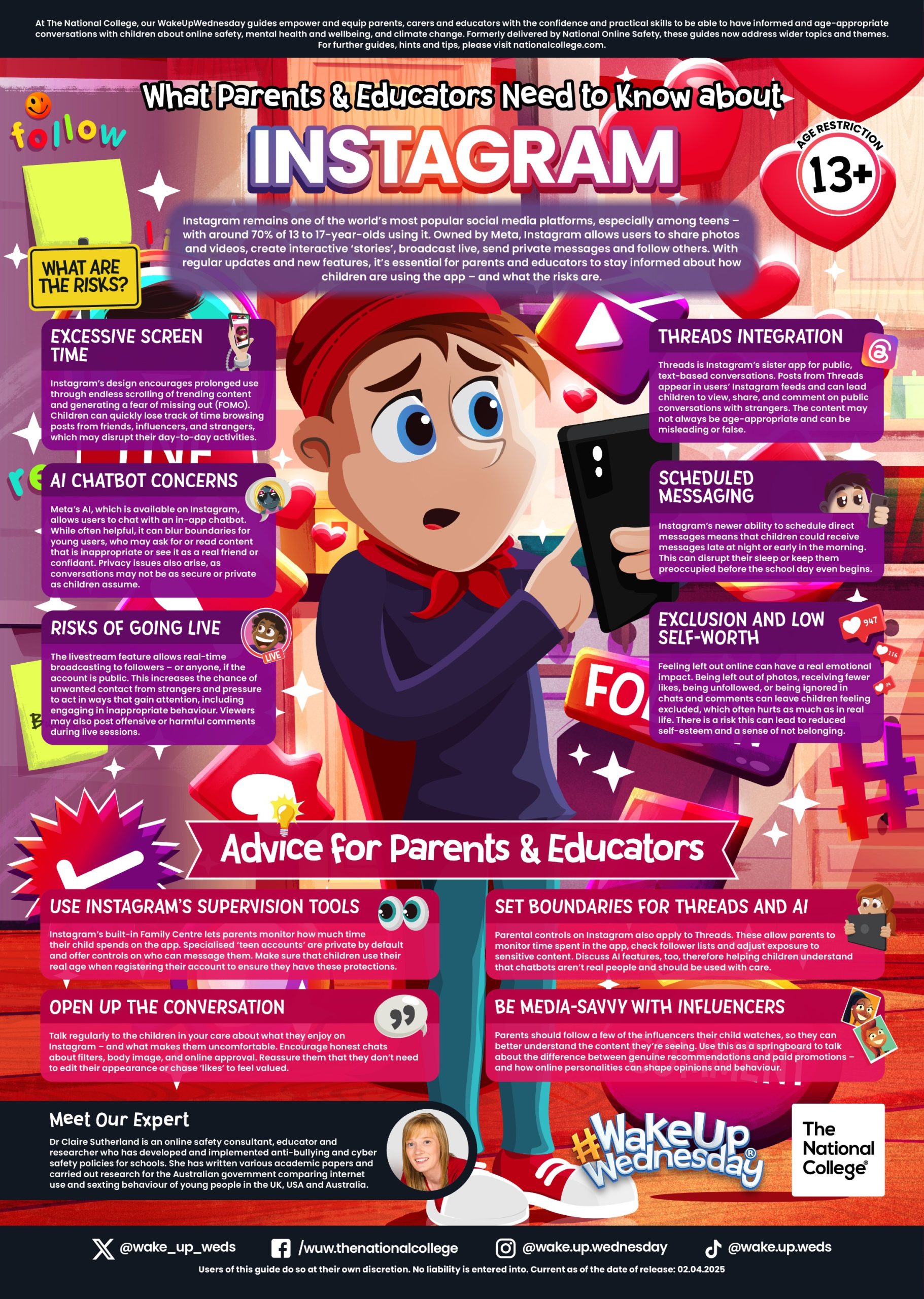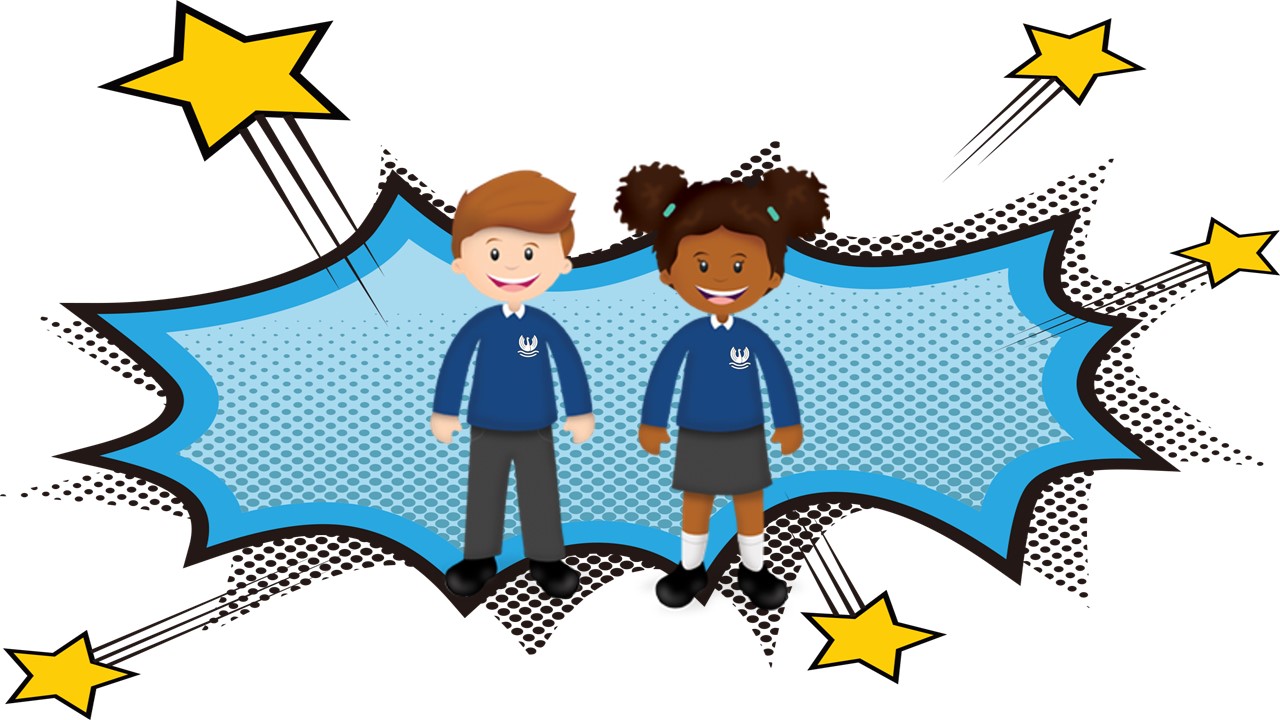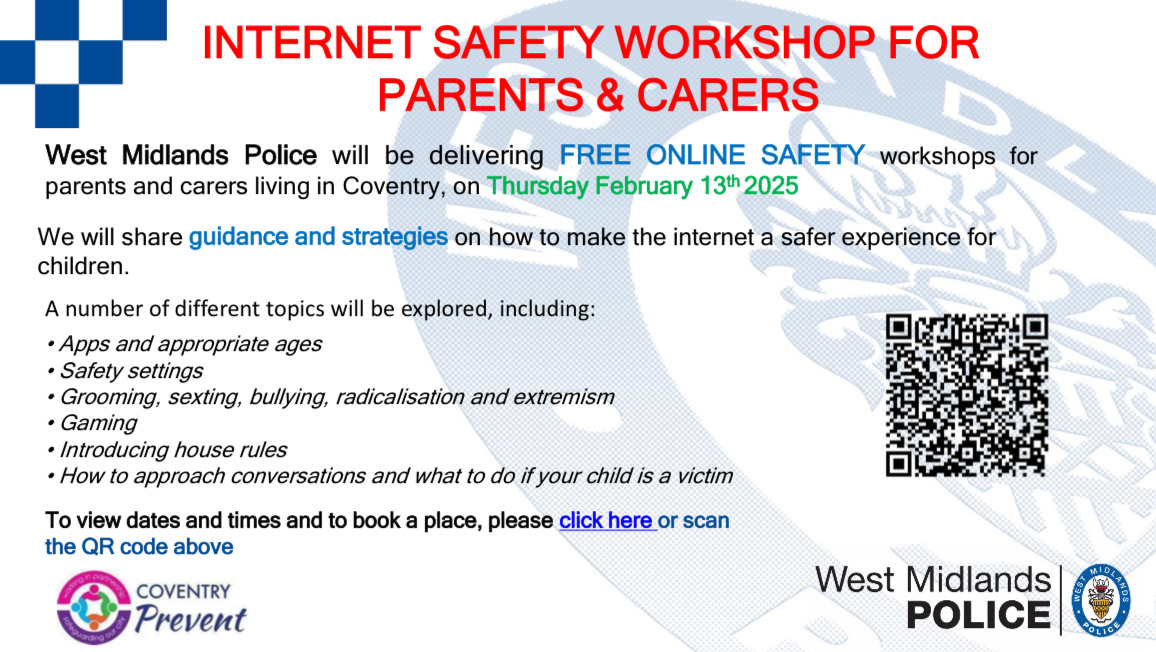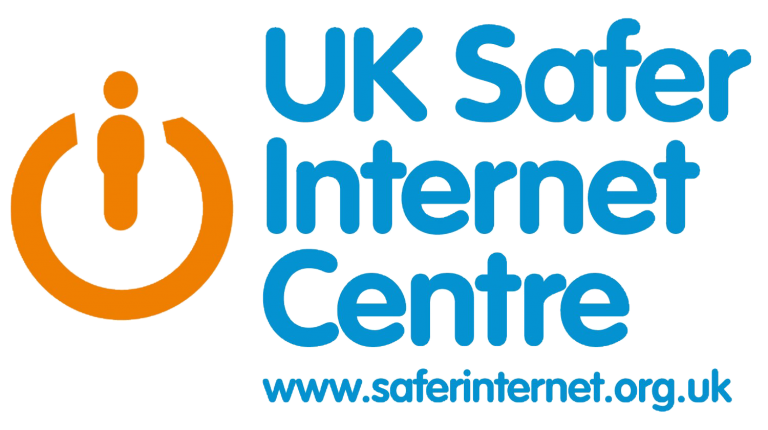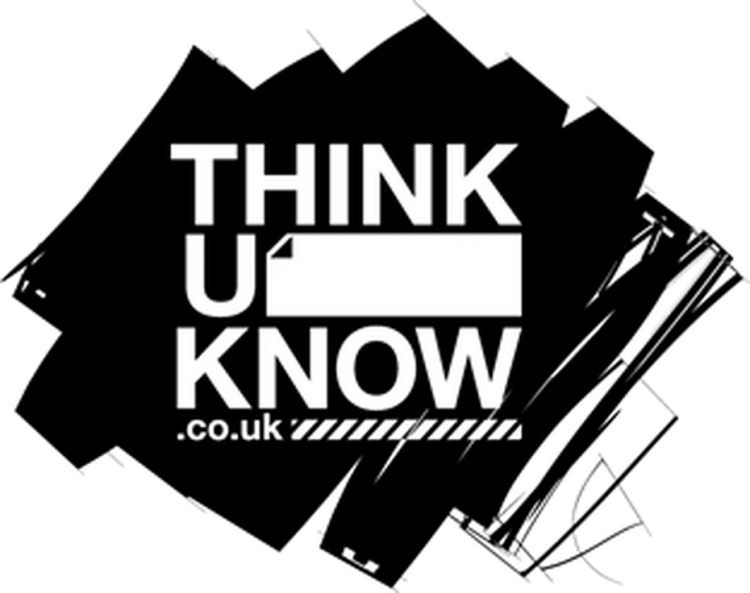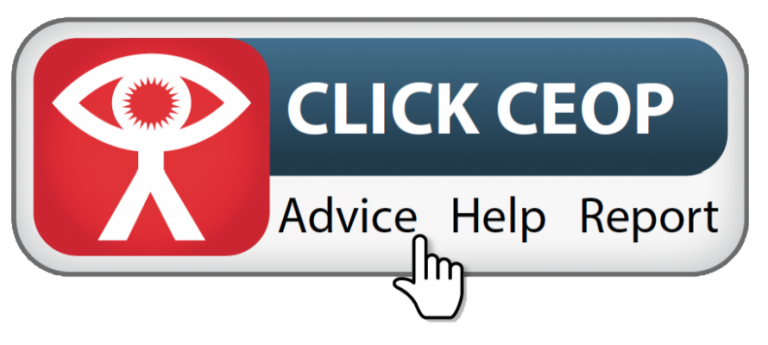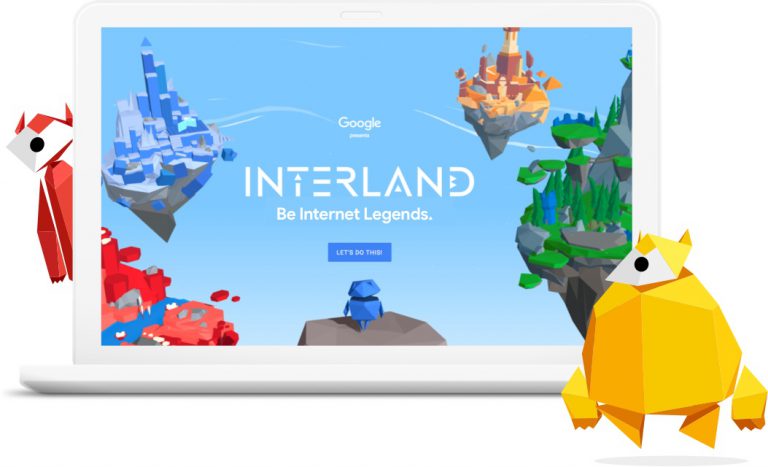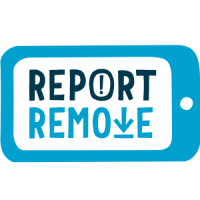West Midlands Police will be delivering FREE ONLINE SAFETY workshops for parents and carers living in Coventry, on...
Read MoreOnline Safety
Latest Online Safety Information
Online Safety – What Parents & Educators Need to Know about Instagram
What Parents & Educators Need to Know about Instagram WHAT ARE THE RISKS? Advice For Parents & Educators:
Read MoreStay Safe Online: A Guide for Primary School Kids
Welcome, young digital explorers! In today’s world, the internet is like a vast, exciting playground filled with games,...
Read MoreINTERNET SAFETY WORKSHOP FOR PARENTS & CARERS
West Midlands Police will be delivering FREE ONLINE SAFETY workshops for parents and carers living in Coventry, on...
Read MoreAs parents – or relatives, teachers and other adults responsible to children’s safety – we want our children and those we look after to be healthy and happy … and to develop well both physically and mentally. Above all, it’s also instinctive that we want kids to be safe.
Get switched on about:
Until their understanding and instincts catch up with their curiosity, our children need to be protected from everyday dangers – whether crossing the road, in and around the home, trying new foods or talking to new people they meet.
And sooner or later … going online.
They’re growing up fast
Depending on the age that your children are now, they may not have yet discovered computers, smartphones or tablets, unless it’s just pressing the buttons! Alternatively, they may already be used to using certain trusted websites or – if they’re older – using social networking sites.
By the time they are older still, they will probably already be ‘online veterans’ who know their way around the internet, apps, games, downloading and social networking with ease. Chances are, they know more about these things than you do. But they almost certainly don’t have the life-experience and wisdom to handle all of the situations they encounter.
Which is why we need a measured approach to keeping our children safe when they’re online.
So what’s changed?
Until relatively recently, most homes had a family computer, on which parents could safely introduce their children to the internet, keep an eye on what they were doing and introduce a degree of monitoring and control using parental software. When children started to get their own computers for doing their homework and playing games, it became more difficult to work with them to ensure they were visiting appropriate websites and not talking to strangers online in the privacy of their bedrooms.
Now, of course, in the age of smartphones and tablets – effectively mini-computers that can be used anywhere – most parents find it a real challenge to not only educate their children in doing the right thing, but monitor and control their online behaviour.
The risks
None of us – of whatever age – is immune from encountering problems online, as a look through this website or the daily news will tell you. Our children are certainly at a vulnerable stage in their lives … naturally more trusting than adults and hopefully having been less exposed to the darker side of the internet. They are also not as well equipped to deal with such issues – or their consequences. Some of these potential issues are as follows:
- Inappropriate contact: from people who may wish to abuse, exploit or bully them.
- Inappropriate conduct: because of their own and others’ online behaviour, such as the personal information they make public, for example on social networking sites. Unfortunately, children can also become cyberbullies, especially when encouraged by others.
- Inappropriate content: being able to access or being sexually explicit, racist, violent, extremist or other harmful material, either through choice or in error.
- Commercialism: being the targets of aggressive advertising and marketing messages.
- Gaining access to your personal information stored on your computer, mobile device or games console, and passing it on to others … or using your financial details such as payment card information.
- Enabling viruses and spyware by careless or misinformed use of their or your computer, smartphone, tablet or games console.
Our advice
Everyone needs help sometimes … and that’s especially true of parents trying to stay switched-on to their children’s online safety.
Please click on the links on this page to pick up some expert, up-to-the-minute advice.
We’ve prepared some simple checklists to help you keep your kids safe online according to their age group. Click on your child’s age to find out more:
Under 5 years 6 – 9 years 10 – 12 years
For information and advice, and to report concerns directly to The Child Exploitation and Online Protection Centre (CEOP). CEOP is a command of the National Crime Agency, and is dedicated to tackling the sexual abuse and exploitation of children and young people. CEOP is here to help young people (up to age 18) who have been forced or tricked into taking part in sexual activity with anyone online or in the real world.
Gosford Park Primary School
Humber Avenue,
Stoke,
Coventry,
CV1 2SF (if using a satnav, use postcode CV1 2DD)
Tel. 02476 223281

